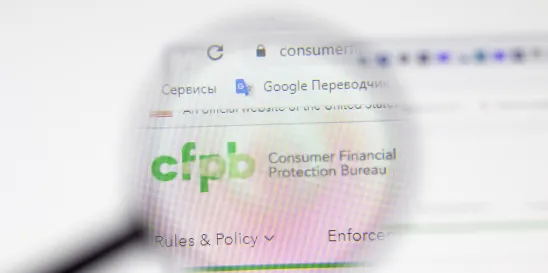In August, a New York federal district court denied a motion to dismiss a CFPB lawsuit against three affiliated companies engaged in the business of purchasing distressed consumer debt and several of the companies’ owners and officers. The CFPB’s lawsuit involves claims against the defendants for violations of the Consumer Financial Protection Act (“CFPA”) and Fair Debt Collection Practices Act (“FDCPA”) based on a theory of vicarious liability as a result of conduct of the companies’ third-party debt collection vendors.
In its complaint, the CFPB alleges that the companies contracted with debt collectors to collect consumer debts on their behalf either directly or through other debt collectors or sold consumer debts to debt collectors, some of whom were contractually required to make ongoing payments to the companies. The CFPB further alleges that both debt collectors who collected debts on the companies’ behalf and debt collectors to whom the companies sold debts used deceptive collection tactics, including false threats of lawsuits, arrest, and jail, and false statements about credit reporting. In addition, the CFPB alleges that the companies received complaints from consumers about the debt collectors’ unlawful practices but took no meaningful action to prevent or preclude it.
In denying the companies’ motion to dismiss the CFPB’s lawsuit, the court made the following rulings:
- The defendants can be “covered persons” or “related persons” under the CFPA even if only the third-party debt collectors actually collected the debts. Accordingly, CFPA liability can be based on vicarious liability and is not precluded by the existence of “substantial assistance” liability in the CFPA. In addition, the owners/officers can be liable on a vicarious liability theory if they had actual knowledge of the underlying unlawful conduct.
- A claim of deceptive acts or practices under the CFPA does not require proof of the same essential elements as common law fraud and the knowledge or recklessness standard required for substantial assistance liability under the CFPA does not transform a substantial assistance claim into the sort of fraud-based claim that would trigger the heightened pleading standard of Federal Rule of Civil Procedure 9(b).
- A company that qualifies as a “debt collector” under the FDCPA can be vicariously liable for FDCPA violations committed by other debt collectors acting in third-party vendor capacity. A company that purchases portfolios of defaulted consumer debt and derives the majority of its revenues from debt collection can be a debt collector under the FDCPA because the principal purpose of its business is the collection of debts.
Putting it into Practice: While the underlying merits of the CFPB’s vicarious liability theories remain undecided, the court’s ruling in this case is a critical reminder that companies can be accountable for CFPA and FDCPA violations committed by their vendors. Accordingly, debt sellers and purchasers should consider taking steps to vet the practices of their vendors, including proactive due diligence and continuing monitoring, in order to ensure that they are compliant with the CFPA and FDCPA.




 />i
/>i

